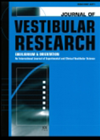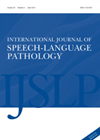
Journal Reviews
Persistent imbalance after traumatic brain injury is central in origin
Several residual symptoms, including dizziness and imbalance, can follow traumatic brain injury, no matter how mild. This study focused on the mechanisms, peripheral and central, underlying the complaint of persistent imbalance in patients with chronic mild traumatic brain injury (mTBI)....
Socially appropriate part 1: assessing people with TBI
Social communication disorders are one of the most common and yet most under-addressed sequelae of a traumatic brain injury (TBI). Yet speech and language therapists report a lack of assessment tools and a lack of time to fully assess these...
Socially appropriate part II: therapy for people with TBI
Social communication is a complex behaviour comprising social and cognitive communication skills. Providing speech and language therapy (SLT) interventions for people with social communication difficulties following traumatic brain injury (TBI) requires the clinician to understand how ingredients from an evidence-based...







